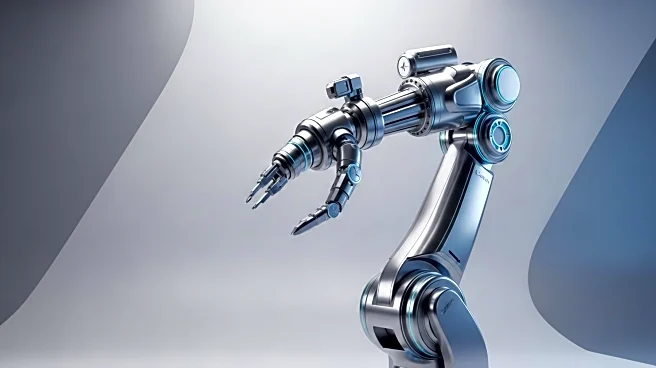What is the story about?
What's Happening?
The US government has initiated a national security investigation into imports of medical devices, robotics, and industrial machinery, aiming to reduce reliance on overseas supply chains. This investigation could lead to the imposition of new tariffs on imported robots, impacting the robotics industry. The Association for Advancing Automation (A3) is preparing its response, with a 21-day deadline for public comments. The investigation highlights the contrasting manufacturing landscapes between medical devices, largely produced domestically, and robotics, predominantly imported from other countries.
Why It's Important?
The potential imposition of tariffs on imported robotics could significantly affect the US robotics industry, influencing manufacturing costs and supply chain dynamics. If tariffs are enacted, they may encourage domestic production and reshoring efforts, aligning with broader national security goals. However, increased costs could also impact innovation and competitiveness, as many industrial robots used in the US are sourced from international manufacturers. The outcome of this investigation will have implications for industry stakeholders, including manufacturers, policymakers, and consumers.
What's Next?
As the investigation progresses, industry stakeholders will closely monitor developments and prepare for potential changes in trade policies. The A3's response and public comments will play a crucial role in shaping the government's decision on tariffs. If tariffs are imposed, manufacturers may need to adapt their strategies, potentially investing in domestic production capabilities. The ongoing debate will likely influence future policy decisions regarding trade and national security, with broader implications for the US economy and global trade relations.
Beyond the Headlines
The investigation into robotics imports underscores the complex interplay between trade policies, national security, and technological innovation. As the US seeks to bolster domestic manufacturing, it must balance the benefits of reshoring with the potential drawbacks of increased costs and reduced access to international technologies. This situation highlights the need for strategic policy decisions that support innovation while safeguarding national interests. The outcome of this investigation could set a precedent for future trade policies, influencing the global robotics landscape.

















